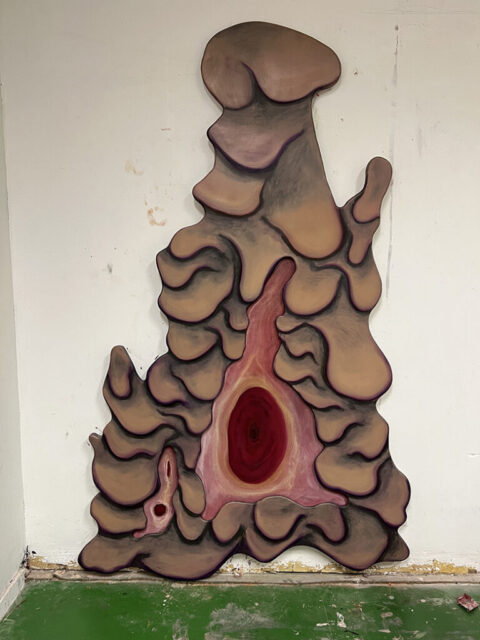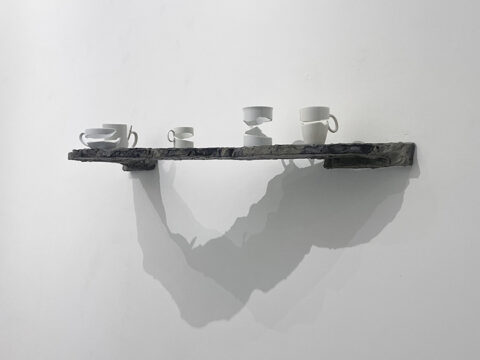In this third episode of the podcast series De Octopus Esther van Rosmalen speaks with artists Liza Wolters and Vedran Kopljar in Antwerp about the momentum of reflection, and how reflection plays a part in their working process. It is the moment – conscious or unconscious – to seek a pause, a point of stillness, in order to contemplate one’s own work during the making. Perhaps to arrive at new ideas or to make different choices. How do they share this vulnerable moment, and what role does the other person play in it?
Listen to the podcast on Soundcloud or Spotify.
Liza speaks about the joy of collaboration, including her work with Hilde Onis. edran discusses working with his parents and with Jan Gordts, whom he still knows from his time in the band Fluwelen Koord. How do they alternate between making and the act of looking, thinking, and talking with someone else? These are strategies to counter solitude, offering space for coincidence. The conversation took place in Vedran Kopljar’s studio in Borgerhout, Antwerp, where the artworks referenced during the talk were displayed on the walls.

ISP (Ajugubuh), Vedran Kopljar, 2022
Vedran Kopljar
Vedran Kopljar was born in Croatia and lives and works in Antwerp, where he graduated in 2015 with a Master in Painting from the Royal Academy of Fine Arts. His work dismantles ingrained patterns of thought and challenges the viewer to adopt new perspectives. He uses language as a tool to grasp what he perceives and experiences. His artistic method can be described as the conceptualisation, construction and erection of mental obstacles – structures that deliberately disrupt any sense of automatic progression.

‘Orchestrating Coincidence’, collaboration Hilde Onis & Liza Wolters, 2023
Liza Wolters
As a wandering artist, Liza Wolters records her observations through photography, video, objects and words. This is her way of understanding the world, questioning positions, and exploring alternative ways of seeing. At the heart of her work lies an expanding archive of images and texts, which manifests itself through a continuous process of arranging and rearranging these materials and their meanings. Liza describes this ongoing act of ordering, analysing and archiving as a fluid repository.
